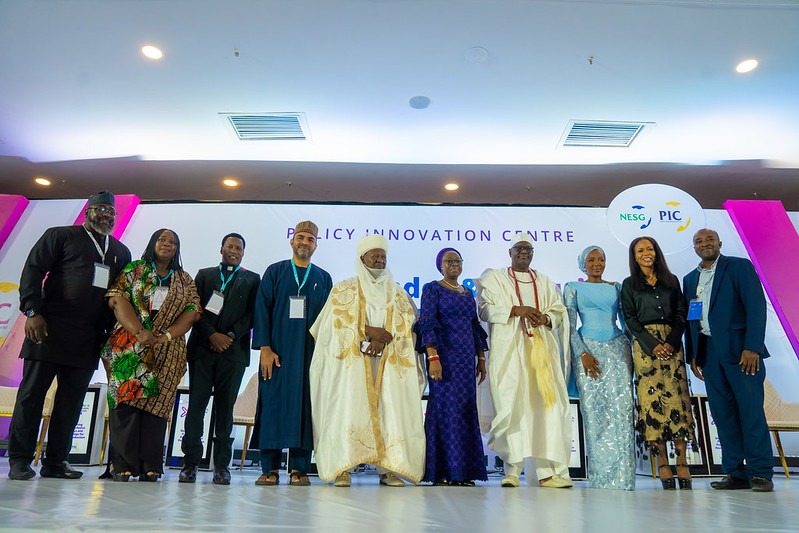
At the 2024 Gender and Inclusion Summit held in Abuja, traditional and religious leaders took centre stage in addressing the pressing issues of Gender-Based Violence (GBV) and poverty. A key session, titled “From Policy to Practice: The Role of Religious and Traditional Leaders in GBV Interventions that Promote Equity and Address Poverty,” highlighted the critical role these leaders play in reshaping societal norms and promoting gender equality.
[ad]
The summit, which convened high-ranking traditional rulers and religious figures, explored how local cultural and religious structures can be leveraged to combat GBV and reduce poverty.
The Interconnection of Poverty and Gender-Based Violence
Discussions during the session underscored the close relationship between GBV, poverty, and deep-rooted societal norms. His Royal Highness Dr Haliru Ndanusa (Emir of Shonga), HRH Dr Jacob Adetayo Haastrup (Olumobi of Imobi Ijesa), and Olori Atuwatse III (Queen Consort of Warri) led the conversation, emphasising how long-standing cultural attitudes, along with economic hardships, contribute to violence against women.
[ad]
Olori Atuwatse III, in her powerful keynote address, stressed the importance of changing mindsets, stating: “Gender-based violence stems not only from economic poverty but also from a mindset that devalues women. Regardless of the community’s wealth, the treatment of women is often shaped by traditional and societal norms.” Her message resonated strongly, highlighting that tackling GBV requires a fundamental shift in how society views and values women.
Traditional Leaders at the Forefront of GBV Prevention
Traditional leaders shared insights into their efforts to integrate women into governance and decision-making processes. HRH Dr Jacob Adetayo Haastrup explained how his community involves women, such as the “Iyalode” (head of women) and “Iyaloja” (market leader), in leadership roles. He pointed out that including women in governance is a critical step in addressing gender inequality.

Sheikh Muhammad Nurudeen Lemu, Director of the Development Initiative of West Africa, reinforced this stance, stating: “God is not gendered, and violence against any human being, regardless of gender, is not only unjust but deeply haram.” He called on religious leaders to focus not only on theological teachings but also on addressing the real-world social and economic drivers of GBV.
[ad]
Call for Broader Collaboration
Throughout the session, the need for collaboration between traditional rulers, religious leaders, government, and civil society was a recurring theme. Fr. Atta Barkindo, Executive Director of The Kukah Centre Foundation, called for increased capacity-building among religious leaders to tackle the root causes of GBV, stressing: “We cannot simply preach prevention without addressing the underlying social and economic conditions that drive violence.” His call underscored the importance of tackling biases within communities.
Key Outcomes and Next Steps
The session concluded with a collective commitment to creating sustained, community-based interventions to address GBV and poverty. Key outcomes included integrating gender into community programmes, increasing the involvement of traditional and religious leaders in GBV interventions, and shifting societal perceptions to promote gender equity.
[ad]
Summit Leadership and Future Outlook
Opening remarks by Mr Olaniyi Yusuf, Chairman of the Nigerian Economic Summit Group (NESG), set the tone for the summit, reaffirming NESG’s commitment to gender equity and addressing poverty. Mr Udeme Ufot, Chairman of the Policy Innovation Centre (PIC), emphasised the need for multi-dimensional interventions to tackle poverty’s impact on women and vulnerable groups.
Dr Osasuyi Dirisu, Executive Director of PIC, delivered closing remarks, announcing the forthcoming release of the Purple Book, which will document key learnings and recommendations from the summit.
Since its inception in 2022, the Gender and Inclusion Summit has served as a platform for advancing gender equality and inclusion across Africa, bringing together researchers, policymakers, and traditional leaders to drive action on these vital issues. The 2024 summit once again proved its importance in shaping a more inclusive Nigeria, where gender equity is central to addressing poverty and violence.
[ad]


